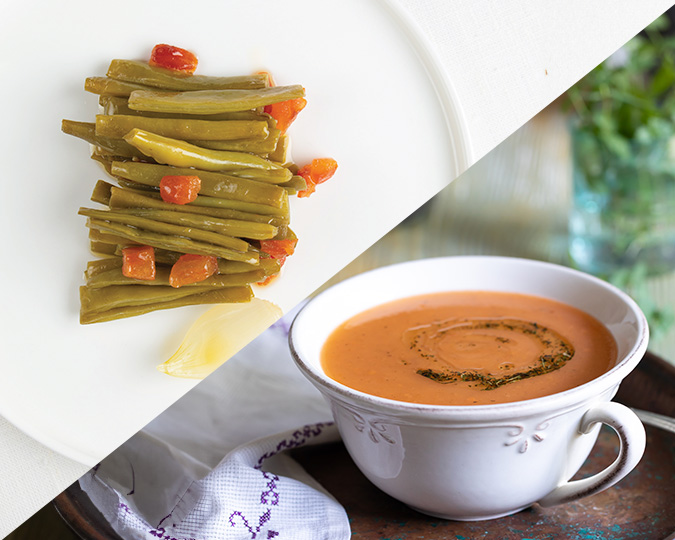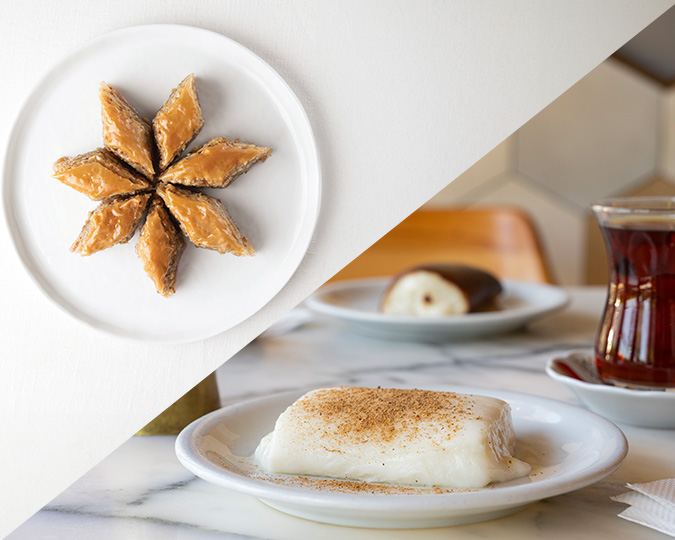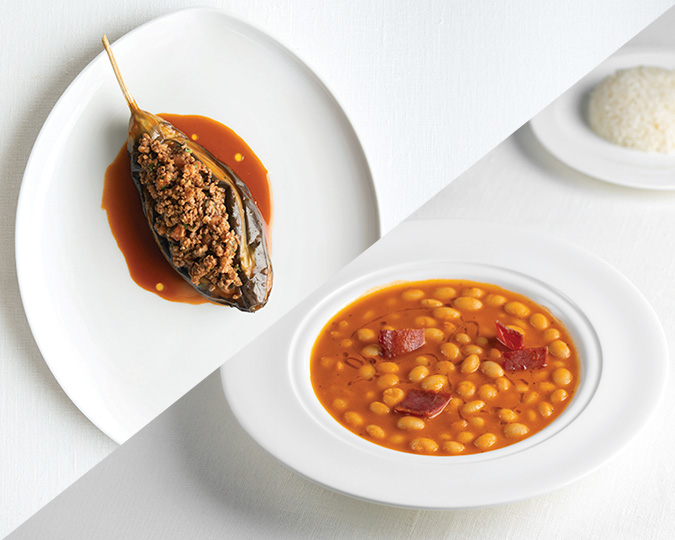




Turkish Cuisine Week
Shaped by the fertile lands of Anatolia, enriched by the traces of countless civilizations over centuries, Türkiye’s rich gastronomic culture is continued to be shared with the world with the Turkish Cuisine Week. Celebrated every year between May 21–27 through various events across Türkiye and around the world, this year’s Turkish Cuisine Week aims to build intercultural bridges with a focus on the backbone of Turkish cuisine: “Classic Dishes.”
As the carriers of Turkish cuisine’s traditional, healthy, and waste-free culinary heritage, the Classic Dishes stand out as the shining gems of the cuisine, embodying its naturalness, rich flavors, and unique preservation and cooking techniques. Through their simplicity and natural flavors, each dish reflects the traces of centuries-old traditions from Anatolia’s fertile soil and showcases the diversity of the Turkish cuisine and its universal value. Although their name is widely known internationally, only few know how to prepare them. So, this year’s theme invites a rediscovery of these classic recipes, with a particular emphasis on their historical roots and their ability to thrive in a modern world that increasingly values sustainability and health. The celebration of Turkish cuisine with classical dishes, therefore, becomes a reflection not only of the country's culinary tradition but of a broader narrative: how ancient practices can find relevance and vitality in contemporary times.
Traditional dishes are far more than a collection of recipes—they are an intrinsic part of Turkish culture, often bringing people together at the dinner table in a way that fosters connection and shared understanding. They offer a family-friendly start for those who want to get to know Turkish culture better. While the basic recipes and products that shapes the local cuisine of 81 provinces offer a colorful range of flavors in national celebrations, the events at the foreign missions of the Republic of Türkiye will reflect the warmth of the traditional Turkish hospitality, where different cultures come together at the tables and get to know each other without prejudice.
From the Family Table to an Intergenerational Cuisine: Classic Dishes of Turkish Cuisine
Prepared with seasonal local ingredients and thoughtful techniques, homemade classic Turkish dishes provide a unique opportunity to deeply connect with Türkiye’s cultural heritage, with their distinctive tradition of being passed down through generations. These timeless dishes, first savored at family homes and shared with guests with pride, continue to carry the ancient values of Anatolia—such as hospitality, togetherness, and unity. They are the essentials of the family tables that bring everyone together.
The menu for the theme “Classic Dishes of Turkish Cuisine” features beloved, healthy, and nutritious flavors that are staples in almost every Turkish household. Iconic soups like Velvety Lentil Soup and Tarhana Soup, along with flavor-packed combinations such as Karnıyarık (Split eggplant filled with minced meat)-Rice-Cacık, Kuru Fasulye (White bean stew)-Rice-Pickles, and Mixed Dolma (Stuffed vegetables)-Yogurt, take center stage this year. İmambayıldı (Eggplants with onion and tomato filling), a light and delightful dish, also steals the spotlight. These dishes are complemented Manti (Turkish dumplings) and Börek (savory pastries) that filled with everything from potatoes to cheese, herbs to minced meat. The menu is further enriched with refreshing Bostana and Çoban Salads, a variety of Hoşaf (fruit compotes). The closure is perfectly sweet with Tavukgöğsü (chicken breast pudding), Kazandibi (caramelized milk pudding), and Baklava.
The Unique Flavors of the 81 Provinces
Türkiye’s seven regions, each defined by its own distinct climate, agricultural products, and cultural heritage, weave together a rich and diverse culinary tapestry. During Turkish Cuisine Week, events across the country will highlight menus featuring classic dishes from each province, offering guests a taste of the region's unique lifestyle and culinary traditions.
These recipes—where spices often shine, local herbs bring dishes to life, and dough is skillfully kneaded and baked in traditional stone ovens—offer a stunning variety of flavors, each embodying the spirit of its land. Every dish not only delights the senses but also opens a window into its culture, connects us to the past, and celebrates the shared values of unity and togetherness.


